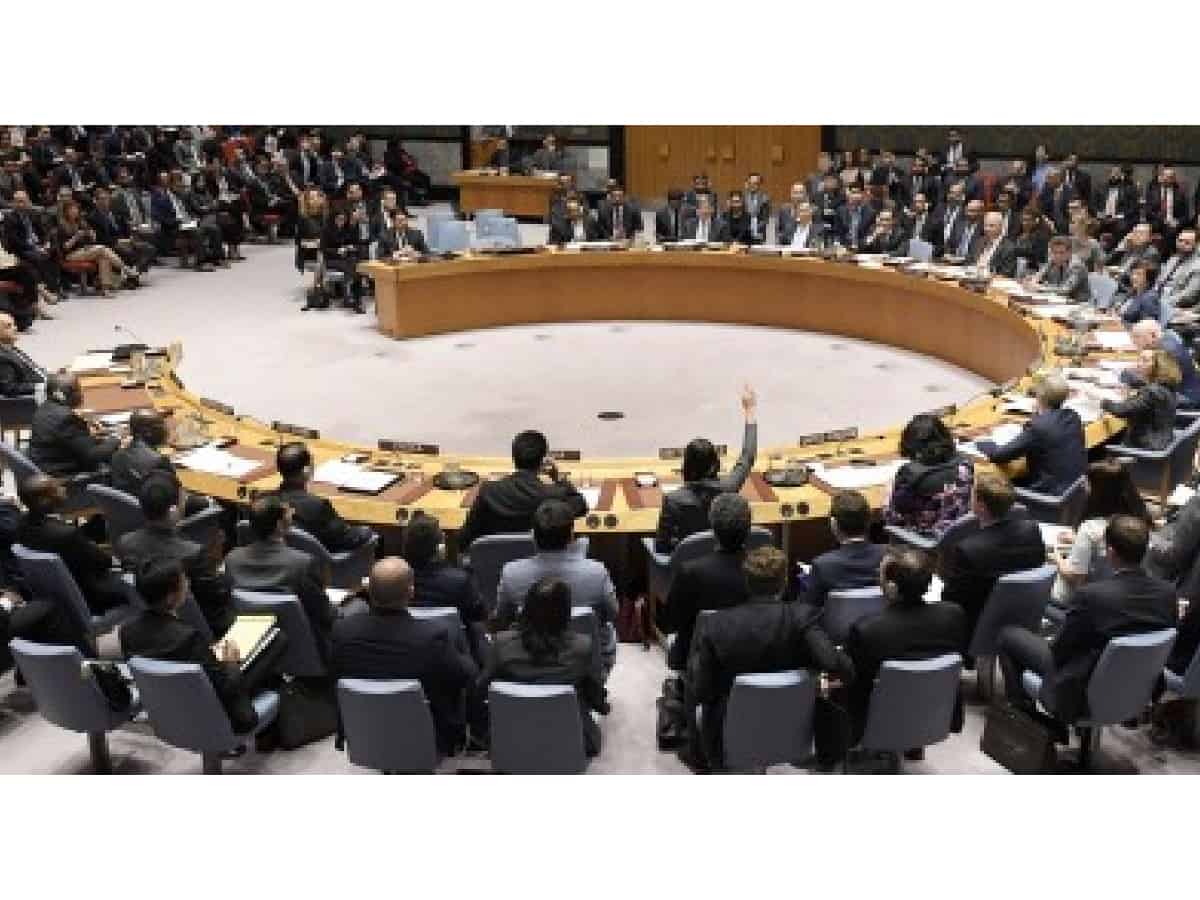
United Nations: The UN Security Council will meet on Friday at Russia’s request to discuss what Moscow claims are “the military biological activities of the US on the territory of Ukraine.”
The Russian request, announced in a tweet on Thursday afternoon from its first deputy UN ambassador, Dmitry Polyansky, follows the Biden administration’s rejection of Russian accusations that Ukraine is running chemical and biological labs with US support.
Council diplomats confirmed the meeting would convene at 10 am EST, speaking on condition of anonymity ahead of an official announcement.
In response to this week’s accusations by Russian Foreign Ministry spokeswoman Maria Zakharova without evidence White House press secretary Jen Psaki issued a public warning Wednesday that Russia might use chemical or biological weapons against Ukraine, the neighbour it has invaded.
Psaki called Russia’s claim “preposterous” and tweeted: “This is all an obvious ploy by Russia to try to justify its further premeditated, unprovoked, and unjustified attack on Ukraine.”
Pentagon press secretary John Kirby on Wednesday called the Russian claim “a bunch of malarkey.”
Dmitry Chumakov, another Russian deputy UN ambassador, repeated the accusation Wednesday, urging Western media to cover “the news about secret biological laboratories in Ukraine.”
A tweet from Russia’s Ministry of Defense, after Polyansky’s tweet calling for a council meeting, referred to a “briefing on the results of the analysis of documents related to the military biological activities of the United States on the territory of Ukraine.”
UN spokesman Stephane Dujarric reiterated Thursday what he said Wednesday — that the World Health Organization, which has been working with the Ukrainian government, “said they are unaware of any activity on the part of the Ukrainian government which is inconsistent with its international treaty obligations, including on chemical weapons or biological weapons.”
The United States for months has warned about Russian “false flag” operations to create a pretext for the invasion.
The White House warning suggested Russia might seek to create a pretense for further escalating the two-week-old conflict that has seen the Russian offensive slowed by stronger than expected Ukrainian defenders, but not stopped.
The international community for years has assessed that Russia used chemical weapons in carrying out assassination attempts against Putin enemies like Alexey Navalny, now in a Russian prison, and former spy Sergei Skripal, who lives in the United Kingdom.
Russia also supports the Assad government in Syria, which has used chemical weapons against its people in an 11-year-long civil war.
The Security Council held its monthly meeting Thursday on Syria’s chemical weapons with UN disarmament chief Izumi Nakamitsu criticizing the Syrian government for repeatedly refusing to answer questions about its chemical weapons programme and urging the Assad government to do so.
Last June, the head of the international chemical weapons watchdog, Fernando Arias, said its experts investigated 77 allegations against Syria and concluded that in 17 cases chemical weapons were likely or definitely used.
Nakamitsu, who is expected to brief the Security Council on Friday, ended her statement on Thursday by saying: “The use of chemical weapons is a grave violation of international law and an affront to our shared humanity.”
“We need to remain vigilant to ensure that those awful weapons are never used again, and are eliminated, not only in Syria, but everywhere,” she said.
US deputy ambassador Richard Mills said that unfortunately Syria has help on the council from its ally Russia, which he said “has repeatedly spread disinformation regarding Syria’s repeated use of chemical weapons.”
“The recent web of lies that Russia has cast in an attempt to justify the premeditated and unjustified war it has undertaken against Ukraine, should make clear, once and for all, that Russia also cannot be trusted when it talks about chemical weapon use in Syria,” Mills said.
Britain’s deputy ambassador, James Kariuki, told the council that “the parallels” between Russia’s action in Ukraine — “besieging cities, killing civilians indiscriminately, forcing millions to flee in search of safety” — and its actions in Syria “are clear.”
“Regrettably, the comparison also extends to chemical weapons, as we see the familiar specter of Russian chemical weapons disinformation raising its head in Ukraine,” he said.



